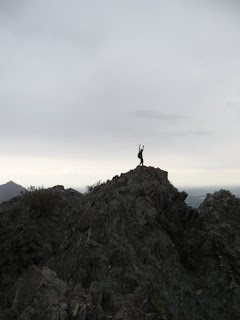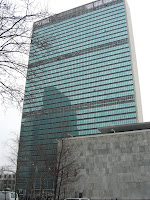Last week, I completed my first law school class as an undergraduate. Through a program called "Project Excellence" (Could they have picked a more pretentious title?), the Barrett college allows undergrads to take classes in the Sandra Day O'Connor College of Law. My class focused on information privacy law, which I thought would be an acceptable tie-in for a journalism major as well as an interesting topic to get some experience in an actual law school class. Right now during finals week, I'm just glad to be done.
I really did enjoy the class, taught by Dr. "Sandy" Askland, who proved extremely helpful for the three of us undergrads struggling up the learning curve. The class' small size (a 20-person seminar) also helped in comprehending the material, typically presented to 2L or 3L (second- or third-year) students. However, with certainty, I can say I've never had so much reading for a class before. It was a struggle to acclimate to law lingo and the work load expected of veteran law students, while not actually a law student myself.
It was also a bit intimidating to be among older, advanced students. The first day, one sitting next to me asked what year I was — "You a 2L or a 3L?" — to which I responded, "Oh, no. I'm an undergrad." The student turned to his friend and said, loudly, "Dude! This kid is an undergrad!" A true statement, though a bit embarrassing to have announced to the entire class. My dad loves that story.
So, all-in-all, it was lot of work. BUT, I did feel pretty spiffy walking around with my giant, leather-bound law book.
Below is my final paper on Internet anonymity. Of course, I'm still not sure of the result from an academic perspective (final grads haven't been posted yet) but I feel pretty good about it — my first ever law school paper.
Privacy of Identity and Association Online
Final Post: In Support of the DREAM Act
15 years ago































































